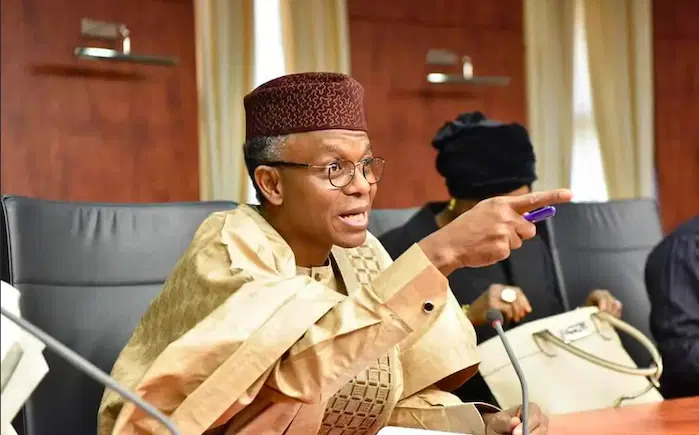The former governor went on air portraying himself as a principled leader who never tolerated negotiations or settlements with criminal elements. He made it appear as though Uba Sani’s government is weak or complicit for engaging in dialogue with those disturbing the peace of the state. However, Nigerians are not forgetful, and Kaduna people in particular cannot be deceived by such selective memory.
El-Rufai must be reminded that during his own tenure, he not only flirted with the idea of dialogue but was in fact reported to have paid ransom to bandits and militias operating in Southern Kaduna. That move was rationalized under the guise of “buying peace” and “compensation to herders” in order to end cycles of violence. The truth is that he directly or indirectly empowered the very actors who later intensified terror across the state.
It was in the wake of the incessant killings in Southern Kaduna that El-Rufai publicly admitted to paying off some of the killers and their sponsors, many of whom were foreign mercenaries. His justification then was that it was better to appease them with money than to allow violence to fester. This is not speculation, it was his own confession before journalists and stakeholders.
Therefore, for him to now turn around and accuse Governor Uba Sani of weakness or poor judgment in exploring dialogue is the height of hypocrisy. People who live in glass houses should not throw stones. If he could attempt negotiations in the past, even to the extent of paying ransom, why does he feel entitled to deride the current administration for similar steps?
Leadership demands consistency, sincerity, and honesty. When a leader acts in a particular way while in office, he loses the moral right to demonize his successor for applying similar measures in a different context. El-Rufai cannot rewrite history. His government tried appeasement and failed. His policies on security neither solved the problem nor mitigated it in the long run.
Today, Kaduna still grapples with the consequences of his failures, instead of accepting responsibility, El-Rufai has chosen the easy path of finger-pointing at his successor. That is not statesmanship; it is an act of shifting blame.
What is even more disturbing in his interview was the attempt to drag the name of the National Security Adviser, Malam Nuhu Ribadu, into disrepute. El-Rufai alleged that the (NSA) is playing a key role in formulating policies of ransom payment and inducement to criminals. This is not only false but a deliberate mischief designed to undermine the office of the (NSA) and distract from the real issues.
Malam Nuhu Ribadu, a man whose reputation as an anti-corruption crusader is known worldwide, has never been associated with ransom payments or inducement of criminals. On the contrary, his office is working to coordinate a robust, intelligence-driven, and collaborative national response to insecurity. To accuse him falsely is to cast aspersions on a man whose integrity towers above cheap political blackmail.
Nigerians should not forget that El-Rufai himself once admitted to paying off foreign mercenaries. He has no moral standing to accuse the (NSA) of policies he personally experimented with. This is nothing but an attempt to shift blame and discredit those who are genuinely working to restore peace. Kaduna people, and Nigerians at large, must see through this charade.
Governor Uba Sani, on the other hand, inherited this broken security architecture. The banditry challenge did not begin with him. It is therefore unfair and mischievous for his predecessor to act as though the crisis emerged only after May 2023. The present government is grappling with the cumulative damage of eight years of El-Rufai’s failed policies.
Dialogue with bandits may not be the ideal or most popular option, but desperate situations sometimes call for desperate measures. What matters is the intention, to restore peace and save lives. If Governor Uba Sani believes that talking to non-state actors is one of the strategies to complement kinetic approaches, then he should be given the benefit of the doubt.
El-Rufai has no right to set himself as a saint or moral compass in this matter. He experimented with the same approach, only that his version backfired. Today, instead of advising constructively, he ridicules his successor on national television. That is unbecoming of a former governor who ought to act as an elder statesman.
For the record, no governor in Nigeria has solved insecurity singlehandedly. Even the federal government struggles with the same challenge. The truth is that El-Rufai failed to secure Kaduna when he had the opportunity. He left a fragile state behind. His successor is left to pick up the pieces, and the least he can do is support rather than sabotage.
On a final note: Malam Nasir El-Rufai should refrain from throwing tantrums on national television and instead reflect on the failures of his government. Constructive advice is welcome, but hypocrisy and false allegations against respected national leaders like Malam Nuhu Ribadu are unacceptable. Kaduna’s future lies in sincerity, collaboration, and solutions, not in the empty grandstanding of yesterday’s leaders.






























